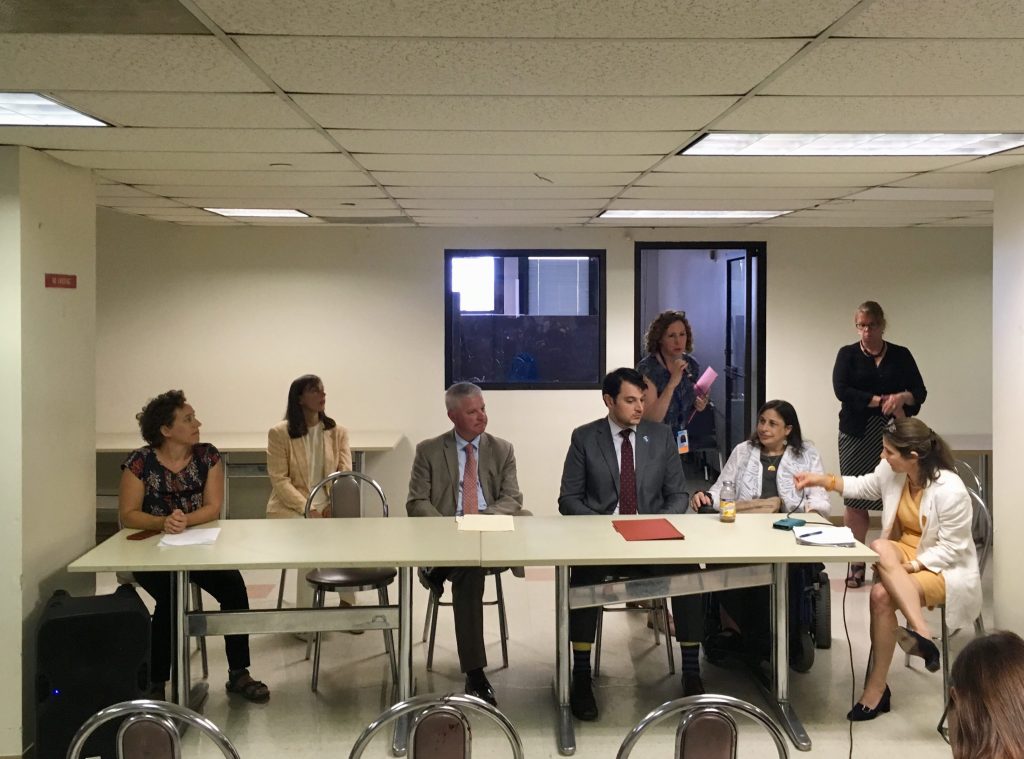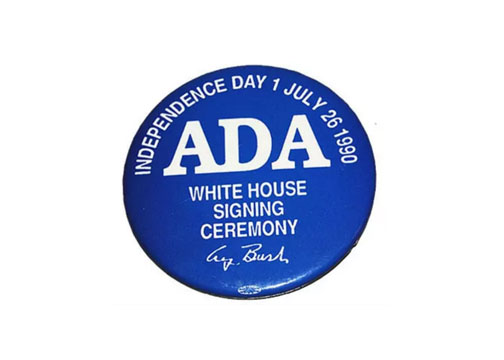Twenty-eight years to the day after the passage of the Americans with Disabilities Act (ADA), New Yorkers with disabilities still face challenges in accessing adequate healthcare, according to experts.
That was the subject of a symposium that the civil rights advocacy group New York Lawyers for the Public Interest (NYLPI) hosted on Wednesday.
The symposium convened disability advocates from government agencies and non-profits, seeking to educate people with disabilities about their rights to accessible medical equipment, accessible facilities, reasonable accommodations, and how to file complaints with enforcement agencies.
“Refusing service because you are disabled clearly is prohibited and unlawful, but there’s also affirmative obligations. [Medical] facilities have to provide reasonable accommodations,” said New York State Division of Human Rights Director John Herrion.
Ruth Lowenkron, Director of NYLPI’s Disability Justice Program, said healthcare providers often do not have adequate accommodations for people with disabilities – such as sign-language translators or wheel-chair accessible facilities – both because of the costs associated with such accommodations and a lack of education among healthcare providers around disability rights.
“They’re not taught this in medical school and it’s not part of their continuing education requirements,” Lowenkron said, adding that NYLPI hopes to convene similar symposiums in the future to educate providers about their obligations toward the disabled.

In the meantime, NYLPI is attempting to educate those with disabilities about their rights, so they can demand adequate facilities from providers, Lowenkron said.
Those who encounter inadequate facilities or discrimination based on their disability can file a complaint, including an anonymous complaint, with the State Human Rights Division or City Human Rights Commission.
“Last year we had over 6,000 complaints filed with our agency – a third of them include allegations of discrimination based on disability. So, we see a high volume in this area in terms of the types of discrimination that people are encountering in the state of New York,” Herrion said.
Herrion added that while the ADA has strict criteria for who qualifies as disabled, both city and state law define disabilities more broadly. “We don’t get so hung up on how disabled are you. We’re more concerned with whether or not discrimination took place, and I think that’s where the focus really needs to be,” Herrion said.
Susan Scheer, Chief Executive Officer of New York non-profit Institute for Career Development, said that after repeated attempts to get a mammography, she was unable to have the procedure performed properly because of her disability.
Scheer, who uses a wheelchair, said that on her first attempt, her radiologist asked her to stand for the mammography. “One of my legs can hold my weight,” Scheer said. “I was basically holding on to this X-ray machine for dear life trying to contort myself in the way they wanted me to while I was in pain.”
“When the person came back to do the readings, they said, ‘well, we did the best we could’ – which is not really what somebody wants to hear because then you don’t have full confidence in the results,” Scheer said.
Scheer said that after subsequent failed attempts to find a radiologist with accessible facilities, she filed a complaint with the city’s Human Rights Commission with the help of NYLPI. After a two-year investigation into its facilities, the radiologist agreed to make updates to become fully accessible.
“None of this could have happened without the Americans with Disabilities Act or the City Human Rights Law, Scheer said. “That was the vehicle that allowed me to say to these institutions, ‘You can’t discriminate. You need to provide access to your services, your equipment – everything that you provide to someone who doesn’t have a disability, you need to provide to me.”










